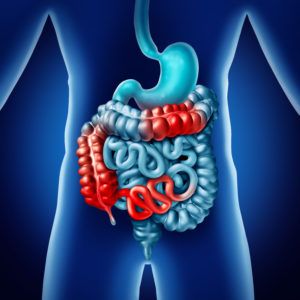Introduction
Crohn's disease is a chronic inflammatory bowel disease (IBD) that affects the lining of the digestive tract. It can cause a variety of symptoms, including abdominal pain, diarrhea, weight loss, and fatigue. There is no cure for Crohn's disease, but there are treatments that can help manage the symptoms and improve quality of life.

Living with Crohn's disease can be challenging, but it is important to remember that you are not alone. There are many resources available to help you cope with the condition and live a full and active life.
This article will provide helpful tips for managing Crohn's disease, discuss common treatment options, and offer advice on living a healthy lifestyle with this condition.
Managing Crohn's Disease: Tips for Daily Living
While medical treatment is crucial for managing Crohn's disease, incorporating lifestyle changes can significantly impact your well-being. Here are some tips to help you manage your condition daily:
- Diet: Identify and avoid trigger foods that worsen your symptoms. Keep a food diary to track your meals and identify patterns.
- Hydration: Diarrhea is a common symptom of Crohn's disease, so staying hydrated is vital. Drink plenty of water throughout the day.
- Stress Management: Stress can trigger flare-ups. Explore relaxation techniques such as yoga, meditation, or deep breathing exercises.
- Regular Exercise: Engaging in regular physical activity can help reduce inflammation, improve mood, and promote overall well-being.
- Support System: Connect with others who understand your condition. Join a support group or online forum to share experiences and advice.
Treatment Options for Crohn's Disease
Treatment for Crohn's disease aims to reduce inflammation, control symptoms, and prevent complications. Your doctor will recommend a treatment plan based on the severity of your condition and your individual needs. Common treatment options include:
- Medications:
- Aminosalicylates: These medications help control inflammation in the lining of the digestive tract.
- Corticosteroids: These powerful anti-inflammatory drugs can be used to induce remission during flare-ups.
- Immunomodulators: These medications suppress the immune system to reduce inflammation.
- Biologics: These targeted therapies block specific proteins that contribute to inflammation.
- Surgery: In some cases, surgery may be necessary to remove damaged sections of the digestive tract or to treat complications like strictures or fistulas.
Living a Healthy Lifestyle with Crohn's Disease
Living with Crohn's disease requires ongoing management, but it doesn't have to prevent you from living a fulfilling life. By following your treatment plan, making healthy lifestyle choices, and seeking support when needed, you can thrive despite the challenges.





